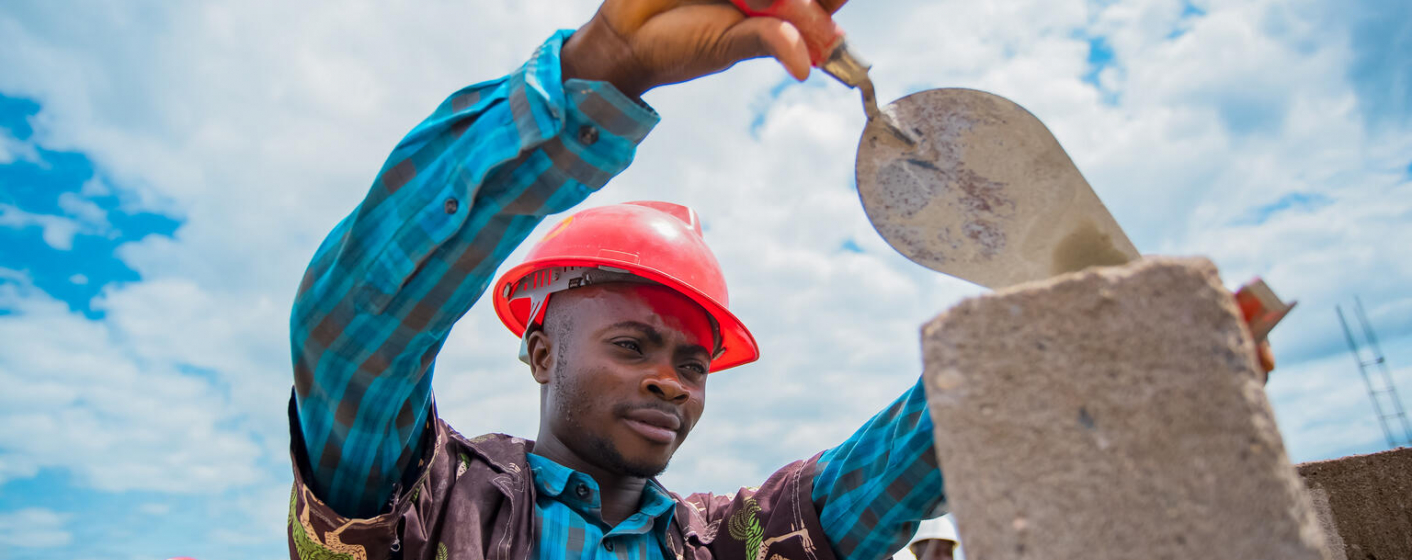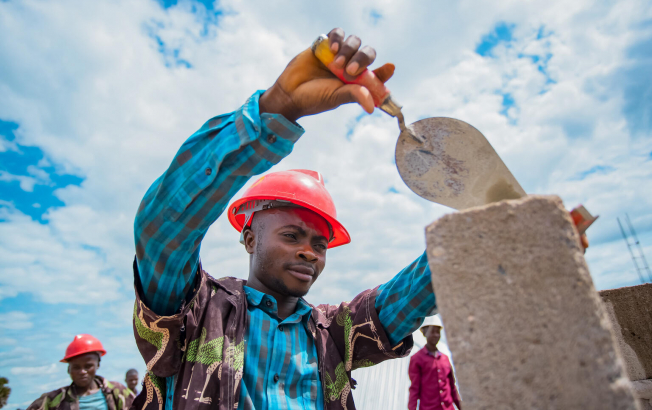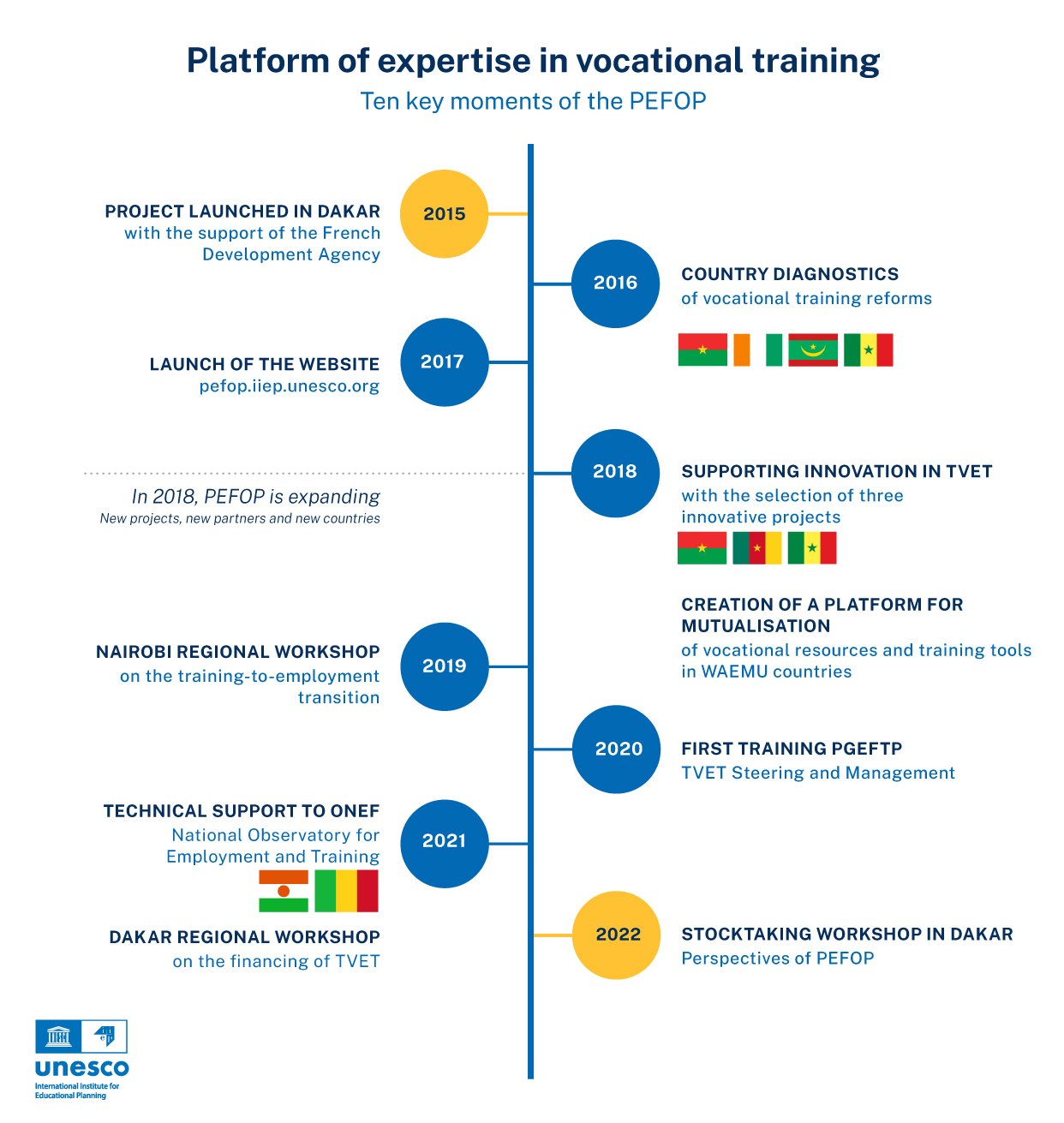PEFOP: looking back on seven years of transforming TVET in Africa
Since 2015, the Platform of Expertise on Vocational Education and Training (PEFOP) has been working for youth employment in Africa. Through this large-scale initiative IIEP-UNESCO Dakar, together with its partners, has contributed to strengthening and renovating the continent's technical and vocational education and training (TVET) systems. From the development of public-private partnerships, the implementation of the validation of acquired experience, pooling resources between African countries, the production of knowledge, to training senior executives in the steering and management of TVET... discover PEFOP’s impact.
In Africa, one in two people is under 25 years old and the population is the fastest growing in the world. Employability is therefore a major issue for the future of the continent. It is based on these observations that the PEFOP story began in 2015, under the impetus of the French Development Agency (AFD).
Initially, IIEP-UNESCO Dakar was mandated to implement a roadmap targeting a few countries in Francophone Africa. The objective was to mobilise and equip not only the ministries in charge of TVET, but the broader ecosystem of technical and vocational training actors involved in the field: companies, public and private actors, trade unions, etc. With two main convictions: the training offer must be piloted according to real economic needs - and professional integration must be placed at the heart of all TVET processes to favour the transition between training and employment.



